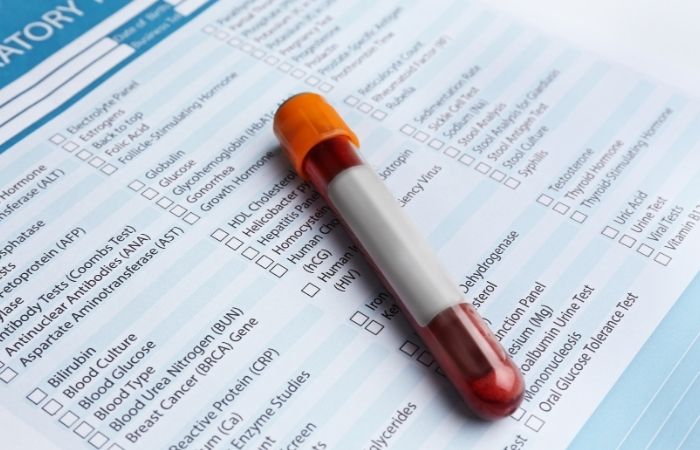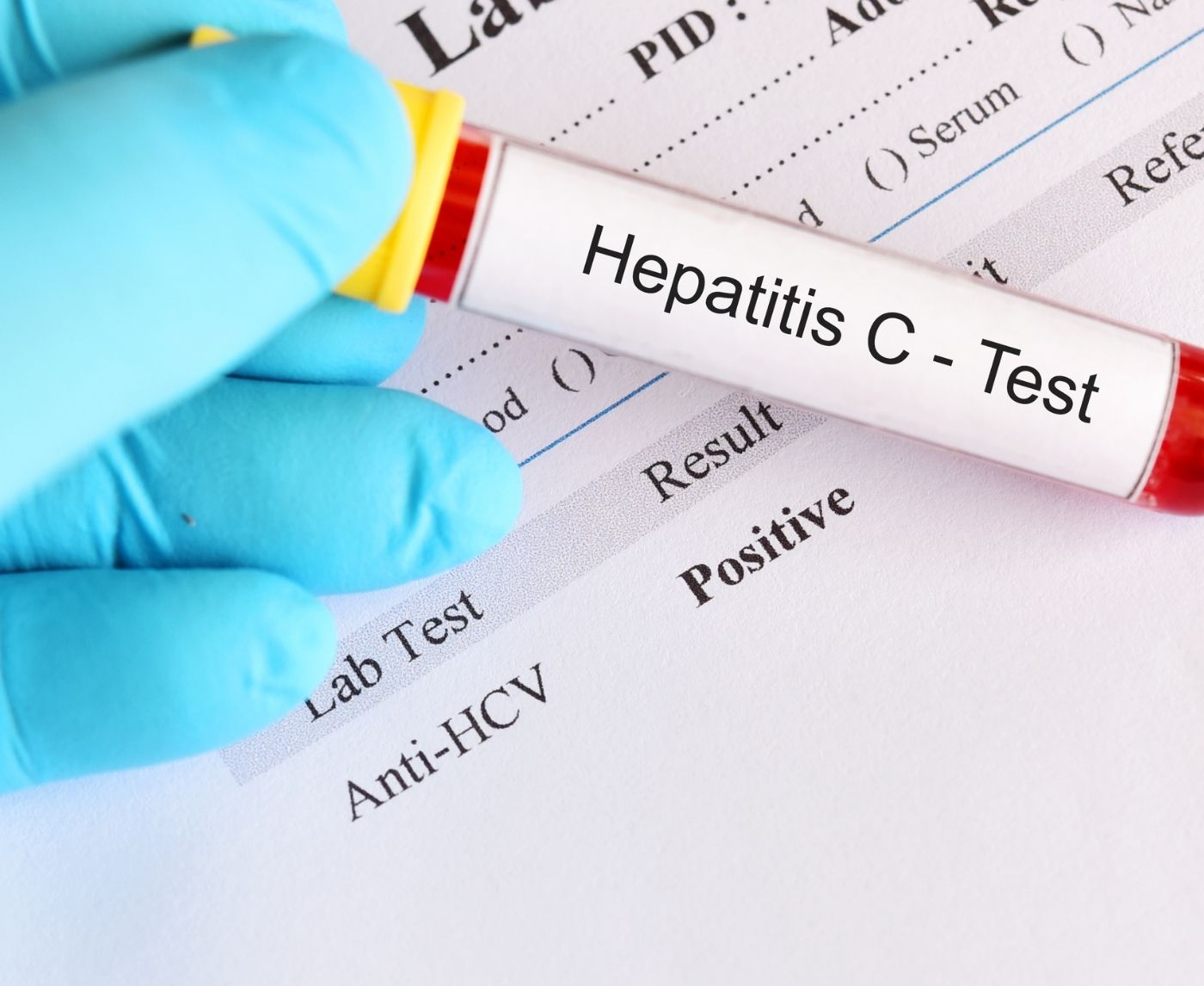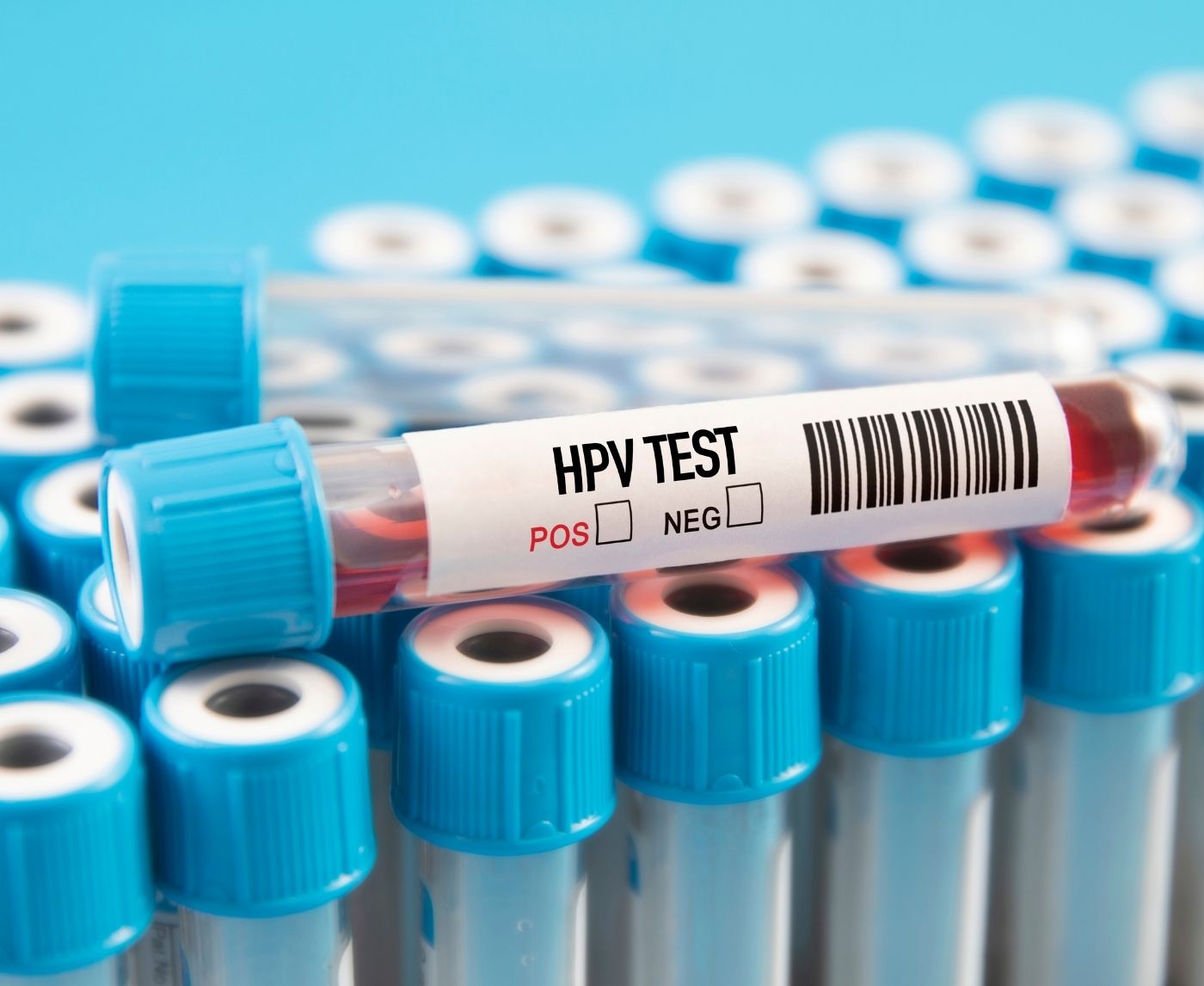When Is the Right Time to Get Tested for HPV?
Quick Answer: Tested positive for Hepatitis C? Stay calm. First, confirm your result. Then, connect with a healthcare provider for further testing and treatment planning. Avoid sharing personal items that could involve blood until you're cleared.
Breathe Before You React
When Savannah, 27, saw her Hepatitis C result pop up on a mail-in app, she locked herself in her car and sobbed for 30 minutes. She assumed her life was about to implode. What she didn’t know? Most Hepatitis C infections today are treatable, often curable, with simple antivirals that don’t even require injections. “I thought it was like HIV. I had no idea how different it was,” she shared later, after completing treatment. You are not doomed. You are not dirty. You are not alone.
Before anything else, pause. Don’t text your partner in a panic. Don’t start Googling every worst-case scenario. Your next steps are about precision, not panic. And your best outcome depends on making smart moves, starting with confirming the result.
Double-Check That Test Result
Yes, even if the line looked solid. Even if the app says “positive.” Even if you’re feeling symptoms. Here’s the catch: Hepatitis C rapid tests detect antibodies, not the virus itself. That means a positive result might mean you’ve been exposed before, but not that you currently have an active infection.
This is especially important for people who previously cleared the virus naturally or were treated in the past. Antibodies can linger long after the infection is gone. What you need now is a confirmatory RNA test, which checks for the actual presence of the virus in your bloodstream. Many at-home test kits, like those from STD Rapid Test Kits, recommend or provide follow-up testing pathways.
Let’s break it down clearly:
Table 1. Rapid vs confirmatory testing for Hepatitis C.
If you tested using an at-home antibody kit, contact your provider or a telehealth service and ask for a quantitative HCV RNA PCR test. Many labs offer this without a doctor’s appointment, and some states allow direct-to-consumer ordering.

People are also reading: Florida’s HIV Crisis by the Numbers: Who’s Most at Risk and Why It’s Rising
Who to Contact First, and Who Can Wait
This part can feel overwhelming. You may feel pressure to tell every past partner or loved one immediately, but don’t rush. First, connect with a medical provider. This might be your family doctor, an urgent care telehealth service, or even a local STI clinic. Their job isn’t to judge, it’s to confirm the diagnosis and help build your treatment path. In the meantime, avoid donating blood, sharing razors or toothbrushes, or engaging in unprotected sex, just to be safe until you have more clarity.
Need a telehealth option? Programs like Planned Parenthood or Nurx may offer Hepatitis C evaluation online. If cost is a barrier, many public health departments offer sliding-scale or free testing follow-ups.
Let your doctor lead the pace of disclosure. Once your RNA results are in, you can talk specifics with your partners, not just fears and guesses.
Understanding Treatment (and Why It’s Not as Scary as You Think)
Here’s the good news no one seems to know: Most people who test positive for Hepatitis C today can be cured, yes, cured, with 8 to 12 weeks of oral medication. These are called direct-acting antivirals (DAAs), and they’ve revolutionized care. Unlike older regimens with interferon shots and nasty side effects, modern meds are often well-tolerated and highly effective.
In clinical studies, cure rates hover around 95–98%, and that includes people with chronic infection. If you’re worried about cost, generic versions are now available and insurance usually covers them. Even patient assistance programs exist to reduce or eliminate the cost of treatment entirely.
Here’s a simplified view of the treatment window and expectations:
Table 2. Typical Hepatitis C treatment timeline.
You won’t need hospitalization. You won’t need painful procedures. And for most people, life goes on uninterrupted, just with a better liver profile at the end.
Talking to Partners Without Shame
No matter how long ago it was, this is the part that makes most people freeze. But here’s the deal: telling a partner you tested positive for Hepatitis C isn’t about blame, it’s about health. You’re not accusing anyone. You’re sharing information so they can get checked too, and so you can protect each other moving forward.
Consider this: Renzo, 34, found out he had Hep C during routine STI screening. He’d been with his current partner for over two years. “I was terrified to tell him,” he says. “I thought he’d think I cheated, or that I’d hidden something.” Instead, his partner just said: “Let’s figure it out together.” Disclosure doesn't always go perfectly, but honesty often opens the door to support, not rejection.
If you’re struggling with what to say, here’s one approach:
"Hey, I just found out that I have Hepatitis C." It doesn't mean I just got it; it could have been there for a long time. I just wanted to be honest and tell you. Just to be safe, you might want to get tested too. “I'm getting follow-up care now."
You don’t owe every detail, but transparency helps reduce stigma. If you feel unsafe or anxious about direct disclosure, some health departments offer anonymous partner notification services.
Should You Get Retested, And When?
Retesting isn’t just about double-checking results. It’s part of the care timeline. If you’re starting treatment, your provider will usually check your viral load again during treatment and a few months after to confirm that the virus is fully gone. This is called SVR, sustained virologic response. Think of it like a final stamp of clearance.
If you got a positive antibody test but a negative RNA test, on the other hand, you may have had Hepatitis C in the past and gotten rid of it on your own. In that case, you might not need treatment, but you might still need to be watched over time, especially if your liver enzymes stay high.
There are also times when retesting makes sense even if you’ve already been treated. For example, if you have a new partner, share injection equipment, or have another known exposure risk, a follow-up RNA test 3–6 months later offers peace of mind and early detection if reinfection occurs.
Keep in mind: false positives on antibody tests are uncommon but possible, especially in populations with very low risk. A false positive should always be ruled out with a second test, preferably RNA-based.
How to Prevent Reinfection and Protect Others
Here’s something many people don’t realize: just because you’ve had Hepatitis C once doesn’t mean you’re immune. Unlike chickenpox or some other viruses, Hep C doesn’t give lasting immunity. You can get reinfected if exposed again, especially through blood-to-blood contact.
If you inject drugs, never share needles, syringes, cookers, or other equipment. Many communities now have safe syringe programs that also offer free testing and health services. If you’re sexually active, barrier protection like condoms and dental dams can reduce risk, especially if there’s potential for bleeding during sex (e.g., anal, rough, or menstruation-related).
For daily life? It’s simple: don’t share razors, toothbrushes, nail clippers, or anything that might come into contact with blood. The virus doesn’t live long outside the body, but under the right conditions, trace blood can still be infectious.
If you’ve been cured, keep your final treatment documentation, it can be helpful during future screenings or when discussing your history with providers.

People are also reading: My Partner Has HPV. Am I at Risk, And What Should I Do Next
Mental Health Is Part of Treatment Too
Even if your care plan is locked in and your partner is supportive, your brain might still be spiraling. That’s normal. A positive STD test of any kind can trigger shame, fear, anxiety, even grief. Add the weight of Hepatitis C’s misunderstood reputation, and it’s easy to feel overwhelmed.
Just know this: You are not your diagnosis. You are not “dirty.” You are not broken. Hepatitis C doesn’t define your worth, your sexuality, or your future. Many people live full, healthy, completely normal lives after diagnosis, and even after chronic infection. Some don’t even need treatment. Others get cured and never look back.
If you’re feeling isolated, it can help to connect with Hep C-specific support forums or advocacy groups. The Hep Mag community, Reddit’s r/HepatitisC, and local liver foundations often host virtual meetups or Q&As that remind you you’re not alone.
Therapy is also valid. A counselor or mental health provider can help you process the emotional aftershocks, especially if your diagnosis ties into trauma, drug use, or past relationships. Healing isn’t just physical, it’s psychological too.
“I Was Sure It Was a Mistake”, One Reader’s Turning Point
Andre, 40, thought he was getting a routine STI check before starting a new relationship. He wasn’t expecting any surprises. “I’ve never used drugs, I’ve never been in jail, and I hadn’t had any symptoms,” he told us. “When I saw Hep C positive, I legit thought the test was broken.”
His first instinct was denial. He retested, convinced the second result would clear everything up. But the RNA test came back positive too. “I was floored,” he said. “I started thinking about tattoos I got in someone’s garage in my twenties, or that one time I helped a friend clean up after a nosebleed without gloves. Stuff I hadn’t thought about in decades.”
Andre’s doctor was matter-of-fact: this isn’t a punishment. It’s a virus, not a verdict. Within two weeks, he was on a short course of treatment. “I didn’t miss a single day of work. I didn’t tell everyone. I just handled it. Quietly. Like people do with high cholesterol or asthma.” His cure was confirmed three months later.
Stories like Andre’s are more common than most people realize. You don’t need to fit a stereotype to carry a bloodborne infection. You just need one exposure, maybe years ago. And the good news is that catching it now, even by accident, still gives you a path forward.
Before You Log Off, Here’s the Real Takeaway
You might still be reeling. That’s okay. You might have questions you haven’t even formed yet. Also okay. But here’s what’s not up for debate: you have options. You have time. And you have nothing to be ashamed of.
STD Rapid Test Kits offers discreet, fast screening you can do from home, whether you're starting your diagnosis journey or making sure you’re cured. You don’t have to wait for symptoms, and you don’t need anyone’s permission to take care of yourself.
So take a breath. Take a beat. Then take the next step. Healing starts here, and it’s a hell of a lot closer than it feels.
FAQs
1. Can Hepatitis C really be cured?
Yes, and that’s not hype, it’s fact. Most people with Hep C today are cured with a short round of pills (we’re talking 8 to 12 weeks, not a lifetime). These aren’t the old-school treatments with awful side effects, either. They’re modern, highly effective, and often covered by insurance or discount programs. The virus doesn’t stand a chance if you catch it and treat it right.
2. Is it possible my test was wrong?
Totally possible, especially if you only took an antibody test. Those tests say “you were exposed,” but not “you currently have the virus.” That’s why a follow-up RNA test is the real deal. Think of the antibody test as a smoke detector, and the RNA test as checking if there’s actually a fire. Don’t panic based on a single strip, get the confirmation before you draw conclusions.
3. Do I have to tell my partner right away?
Not right away, but eventually, yes, and you get to decide how. Once you’ve confirmed the infection, giving your partner a heads-up is the respectful move. It doesn’t need to be a big sit-down or confession. Something like, “Hey, I tested positive and I’m getting treated, I think you should get tested too” can be enough. Remember: honesty is protective, not punitive.
4. Will this ruin my sex life?
Not at all. You may want to pause until you’re under treatment or cleared, but sex doesn’t go out the window forever. Hep C isn’t easily transmitted through sex (especially vaginal), and using condoms or avoiding sex that might involve blood, like during your period or anal, lowers the risk even more. Once you're treated or cured, there’s no reason you can’t get back to pleasure with peace of mind.
5. What if I had Hep C and didn’t know?
It happens all the time. Some people carry it for years without a single symptom. Others had it, fought it off without knowing, and only find out because of a leftover antibody on a test. That’s why the RNA test is key, it tells you what’s happening now, not just what happened sometime in the past.
6. Can I get Hep C again after I’ve been cured?
Yes, and that part sucks. Hepatitis C doesn’t leave you immune after treatment. If you’re exposed again, especially through sharing needles or any blood-to-blood contact, you can get reinfected. That’s why prevention isn’t just a one-time thing. It’s ongoing care. Stay sharp, stay safe.
7. Do I need to stop drinking?
If you’re still infected or starting treatment, yes, it’s smart to quit. Alcohol hits your liver hard, and your liver is already doing overtime dealing with the virus. Even if you're cured, keeping your liver happy (read: minimal drinking) helps your long-term health. Think of it as temporary if you must, but your future liver will thank you.
8. Will this affect my job or insurance?
It shouldn’t. Hep C isn’t something you can catch from casual contact, so there’s no reason to be barred from work or school. As for insurance, many plans cover treatment now because it's so effective and cost-saving long-term. And if you're uninsured? Programs exist that can cover or reduce costs significantly, no shame in asking for help.
9. How long do RNA results take?
Usually within a week, sometimes faster with express labs or telehealth kits. While you wait, try not to spiral. Use the time to plan next steps, not to assume the worst. If you're using an at-home service, tracking updates should be part of the package.
10. Can I still test at home for Hep C?
Absolutely. At-home Hepatitis C tests are often the first step, especially for people who don’t want to deal with clinics. Just make sure you understand what kind of test you’re taking. If it’s antibody-only, be ready to follow up with an RNA test to confirm. Some test providers even include both. If you need a discreet option, this at-home kit is a good starting point.
You Deserve Answers, Not Assumptions
Getting a positive Hepatitis C result can feel like your whole world tilts sideways. But the truth is: this diagnosis is manageable, often curable, and never a measure of your worth. What matters most is what you do next, not where you’ve been.
You don’t need to panic. You don’t need to hide. You just need a plan, a little clarity, and a support system, professional or personal, that’s got your back. And if you're still unsure where to start, at-home options like the Combo STD Test Kit can offer peace of mind while you're navigating your next steps.
How We Sourced This Article: To make this guide helpful, compassionate, and accurate, we drew on peer-reviewed research, real-world experience reports, and the most recent recommendations from leading medical organizations.
Sources
1. Hepatitis C Fact Sheet – WHO
2. Hepatitis C Virus: Insights into Its History, Treatment, Challenges … – NIH (PubMed)
3. Update on Hepatitis C Virus Management – NIH (PubMed)
4. Treatment of Chronic Hepatitis C: Efficacy, Side Effects and … – PMC
5. Screening for Viral Hepatitis – NCBI Bookshelf
8. Clinical Care of Hepatitis C – CDC
About the Author
Dr. F. David, MD is a board-certified infectious disease specialist focused on STI prevention, diagnosis, and treatment. He blends clinical precision with a no-nonsense, sex-positive approach and is committed to expanding access for readers in both urban and off-grid settings.
Reviewed by: J. Elston, NP-C, MPH | Last medically reviewed: October 2025
This article is for informational purposes and does not replace medical advice.







